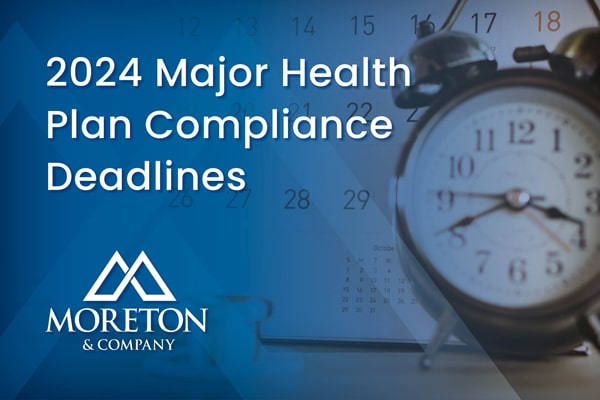
Suicide Prevention and Awareness
There’s no single cause for suicide. Suicide most often occurs when stressors and health issues converge to create an experience of hopelessness and despair. Depression is the most common condition associated with suicide, and it is often undiagnosed or untreated. Conditions like depression, anxiety, and substance problems–especially when unaddressed–increase the risk for suicide. Yet it’s important to note that most people who actively manage their mental health conditions can engage positively in life.
Who Is at Risk?
Risk factors are characteristics or conditions that increase the chance that a person may try to take their life. People of all ages, genders, and backgrounds can attempt suicide, but some groups are at higher risk than others. Men are more likely than women to die from suicide, but women are more likely than men to attempt suicide.
Several factors can also contribute to the risk of suicide, such as:
- Previous suicide attempt(s)
- History of depression, an eating disorder, or other mental illness
- Alcohol or drug abuse
- Family history of suicide, violence, or abuse
- Physical illness
- Relational, social, occupational, or financial loss
- Feelings of hopelessness
- Impulsive or aggressive tendencies
- Barriers to accessing mental health treatment
- Feeling alone
Warning Signs
Something to look out for when concerned that a person may be suicidal is a change in behavior or the presence of entirely new behaviors. This is of greatest concern if the new or changed behavior is related to a painful event, loss, or change. Most people who take their lives exhibit one or more warning signs, either through what they say or what they do. When a person is thinking about suicide, they will likely display indications, which may include:
- Threats, talk, or writing of suicide or self harm
- Withdrawal from family and friends
- Sudden, excessive and/or uncontrolled rage
- Taking unnecessary risks or exhibiting self-destructive behavior
- Increased alcohol and/or drug use
- Dramatic mood swings
Prevention
If someone you know is threatening suicide, it is important to start a conversation regarding their state of mind. Most of the time, the person will talk willingly. Make sure to listen and express empathy. Do not leave them alone, and if they refuse professional help, see that a parent or trusted friend is informed.
If you are struggling with suicidal thoughts, talk about how you are feeling with someone you trust. Do not be ashamed to admit you need help. The National Suicide Prevention Lifeline (988lifeline.org/) is always staffed and ready to listen by calling, texting, or chatting 988.
To learn more about Suicide Prevention and Awareness visit: afsp.org/
What to do When Someone is at Risk
If you think someone is considering suicide, assume you are the only one who will reach out. Here’s how to talk to someone who may be struggling with their mental health:
If You’re Concerned About Someone
Talk in Private: Listen to their story and let them know you care. Ask directly about suicide, calmly and without judgement. Show understanding and take their concerns seriously. Let them know their life matters to you. That one conversation could save a life.
If a Person Says They’re Thinking About Suicide
Take the Person Seriously: Someone considering suicide is experiencing a life-threatening health crisis and may not believe they can be helped. Work with them to keep them safely away from lethal means like firearms and drugs and remind them that they have something worth living for.
Stay with them and call or text 988 the Suicide & Crisis Lifeline. (988lifeline.org/) Be sure to follow up with them after the crisis to see how they’re doing.
If You’re Struggling
Don’t Wait for Someone to Reach Out: Seek mental health treatment or tell your clinician about your suicidal thinking. Treat yourself like you would treat someone else who needs your help.
If a person says they are considering suicide:
- Take the person seriously
- Stay with them
- Help them by removing lethal means
- Call, text or chat the 988 Suicide and Crisis Lifeline: 988 (988lifeline.org/)
- Text TALK to 741741 to text with a trained crisis counselor from the Crisis Text Line for free, 24/7 (www.crisistextline.org/)
- Escort them to mental health services or an emergency room
What to do when someone is at risk. American Foundation for Suicide Prevention. (2023, January 4). https://afsp.org/what-to-do-when-someone-is-at-risk/
– Mental Health Moment –
Dealing with Depression
Depression is a loss of interest in normal activities and feelings of sadness that persist for a long period of time. Depression affects a wide range of people. Common symptoms include the following:
- Decreased energy, fatigue, or feeling “slow”
- Sleep disturbances
- Feelings of guilt, worthlessness, or helplessness
- Thoughts of death or suicide
- Restlessness or irritability
- Excessive crying
- Chronic aches and pains that do not respond to treatment
Other symptoms may inhibit your success at work. Co-workers or supervisors might notice the following:
- Decreased productivity
- Morale problems
- Lack of cooperation
- Safety problems and accidents
- Absenteeism
- Frequent complaints of being constantly tired
- Alcohol and drug abuse
You should seek help if you have the above symptoms for more than two weeks or they are interfering with work or family life. You should also consider:
- Contacting your family physician, as perceived symptoms of depression may be indications of other physical conditions.
- Contacting your employer’s HR department or Employee Assistance Program (EAP). These programs offer confidential help for a variety of conditions.
- Discussing options like prescription medication or therapy with your doctor to help restore your well-being.


